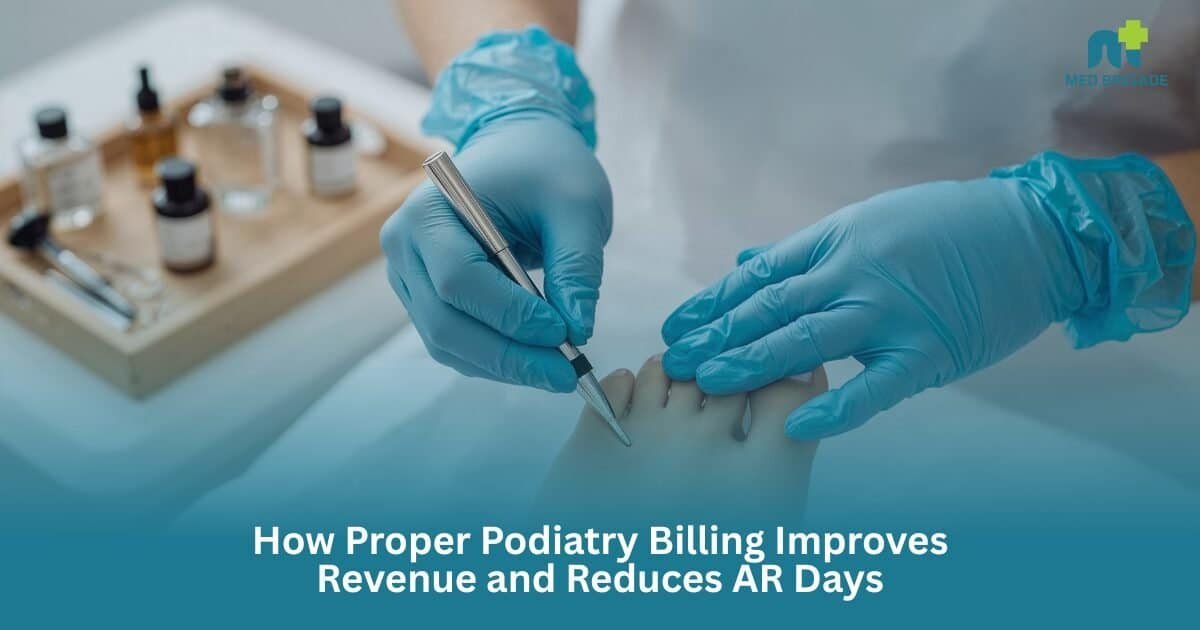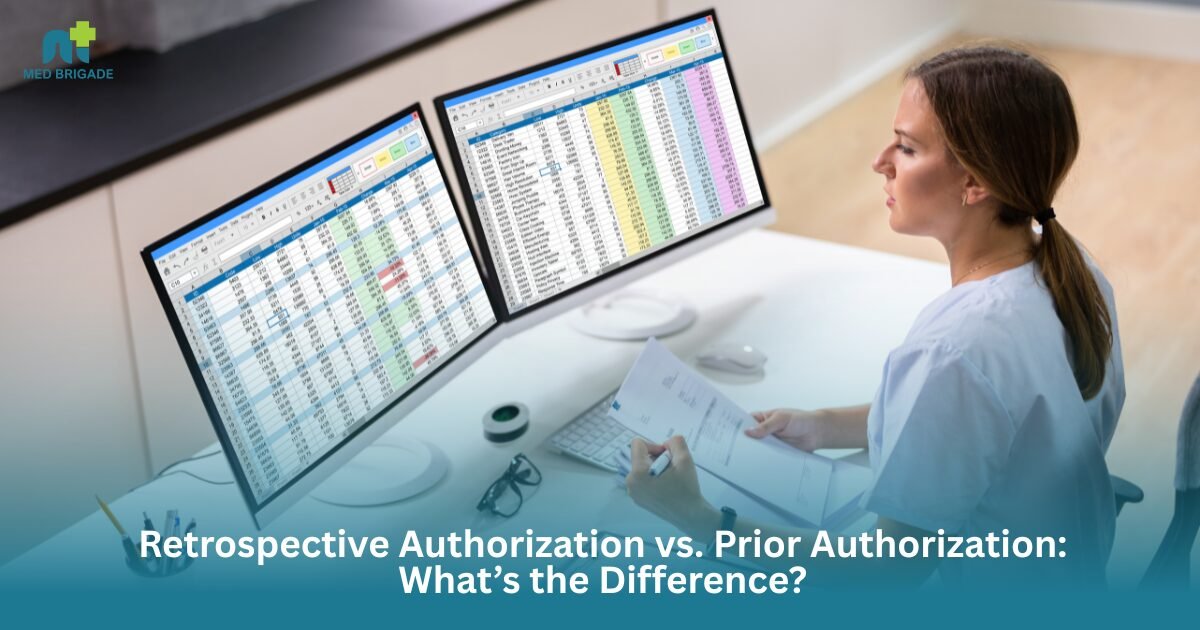
Retrospective Authorization vs. Prior Authorization: What’s the Difference?
Routine lab test or even a complicated surgery, receiving payer approvals will be the difference between life and death in the revenue cycle. There are two most common authorizations that are confusing to billing professionals, which are retrospective authorization and prior authorization. Although the two are all related to the process of healthcare authorization, they have vastly different purposes and schedules. The distinction is critical to ensure that any claims remain within the law, prevent payments, and ensure that your practice does not lose its revenue.
Sign up for our blogs
Latest Post


A Complete Guide to Medicare & Podiatry Reimbursement

How to Avoid Chiropractic Billing Errors That Cost You Money

Internal Medicine Coding Accuracy: Key to Maximum Reimbursement

How Proper Podiatry Billing Improves Revenue and Reduces AR Days

How Radiology Practices Can Improve Revenue Cycle Efficiency
Billing Enquiries

What Is Prior Authorization in Medical Billing?
Prior authorization is any pre-approval process that is required by an insurance company before some medical procedures, medication, or treatment can be done. It guarantees the medical necessity and the coverage by the insurance of the patient.
The healthcare team provides procedure codes, details of diagnoses, and clinical notes to the payer prior to care delivery. When licensed, the provider will work with a lot of confidence as he or she knows that the claim is likely to get reimbursement.
To give an example, sophisticated imaging (MRIs), surgery, and some prescriptions usually involve the use of prior authorization. This action will assist the providers and patients in avoiding unanticipated rejections and expenditures. To the point, it is an active risk prevention of revenue interruption.
What Is Retrospective Authorization?
Conversely, the retrospective authorization occurs after the medical care has been provided. Usually, it is applied when authority to treat cannot be obtained beforehand, that is, in emergencies or urgent hospitalization.
Upon the completion of the service, the provider forwards all the supporting documentation that must indicate medical reports, treatment summaries, and medical necessity notes to the insurance firm to review them. It is then left up to the payer to decide whether the service will be reimbursed or not.
Although the retrospective authorization has the advantage of making sure patients are looked into at the moment they require it, it is associated with increased risk as well. The claim might be rejected in case the payer believes that the treatment was not essential or was not included. That is why it is important to have a follow-up in time and proper documentation in such a process.
Major Differences between Pre-and Post-authorization
Despite the fact that both of them belong to medical billing authorization, timing, procedure and effect of these two authorizations vary greatly. These differences will lead to a more effective business of ensuring that the process of medical insurance authorization obtains independence and providers have predictable cash flows.
Aspect | Prior Authorization | Retrospective Authorization |
Timing | Before the procedure | After the procedure |
Risk of Denial | Low (approved in advance) | High (depends on post-review) |
Use Case | Non-urgent care, scheduled procedures | Emergencies or urgent cases |
Documentation | Diagnosis, planned procedure | Post-treatment medical records |
Impact | Prevents denials, ensures smooth payment | May delay or deny payment |
The Importance of Authorization in Revenue Cycle Management
The two forms of authorization serve a critical role in revenue cycle management (RCM). They serve as control gates to make sure that everything had been rendered is reimbursable. Authorisation eliminates time spent on claims by fraudsters, accelerates payment, and enhances financial results when applied effectively.
An efficiently developed healthcare authorization process brings an extra benefit in compliance as well as safeguards providers against expensive payer audits. Most hospitals and clinics are now opting to outsource their medical insurance authorization service to specialist billing teams who specialise in servicing payer requirements as well as in dealing with tricky documentation with efficacy.
How Med Brigade Can Help?
The process of issuing authorizations may be long and complicated, particularly in case with several insurance companies. That is where Med Brigade comes in. Med Brigade is a trusted leader in medical billing authorization as well as RCM services, enabling healthcare organizations to manage both types of approvals, namely prior and retrospective authorization, with precision and rapidity.
We take the best technology and professional talents to simplify your health care authorization process. Investigations no matter it is a clinic or a large hospital, Med Brigade will make sure that every claim is taken through the correct channels that are compliant and accurate and are reimbursable.
Retrospective authorization as well as prior authorization have significant functions in the billing process. Prior authorization makes payment easier by guaranteeing approval of payments ahead of treatment, and retrospective authorization eases care in case of emergency, without forcing them to wait until it is approved. Understanding their usage aids medics in avoiding wastage of time and resources and secures their profits.
Working with Med Brigade will help you get approvals done effectively, correctly, and in accordance with payer requirements. Using our focused attention, you will be able to concentrate on the patients and leave the intricacies of the insurance acceptance and the recovery of revenues to us.
FAQS
The treatment has to be pre-certified and the post-certification has to be requested after the service delivery.
It provides the insurability of a procedure beforehand, minimizing the risks of refusal of the claims and refusal to receive payment on time.
Yes, Med Brigade will provide both comprehensive support of the prior authorization and retrospective authorization to enhance the accuracy of claims and financial performance.